

Over the course of three years (2015-2017), the Shaping Autism Research seminar series (#ShapeARUK), funded by the ESRC: Economic and Social Research Council, was organised by autistic and non-autistic people and aimed at determining if/how we should make autism research more participatory.
In August 2018, a paper reporting on this seminar series was published in the journal Autism.
Interested in making your research more meaningful to autistic people’s lives? Want to do research with autistic people, rather than on or about them? Intrigued but don’t know where to start?
Well, this Starter Pack is for you. In fact, it is for anyone involved in
autism research - in any discipline, in any capacity and in any stage of their
lives.
It describes how you can begin to genuinely involve autistic people in your research – in such a way that it promotes trusting relationships, is built on mutual respect, and involves listening to, and learning from, one another – that is, being empathetic researchers.
The Pack also provides some practical ideas about how autistic people and their allies can work together in research.
All of the content was inspired by discussions and debates held in Edinburgh, Newcastle, Cardiff and London as part of the ESRC-funded Shaping Autism Research seminar series. And it was made beautiful by the wonderful artists, Ben Connors and Jon Adams - Flow Observatorium, and amazing designer, Adele Jeffs.
Over to YOU!
You can download the free Starter Pack below:

Research from A Future Made Together showed that autistic people’s experiences of being involved as a participant in research were not particularly positive and, for some, even dehumanising. During the Shaping Autism Research seminars, we discussed the need to improve participants’ experiences of research, treating them more as humans and less as objects.
One potential way to achieve this goal is to evaluate our research practices through the use of standardised participant questions. Two #actuallyautistic members of the Autistic Space Kit team (and Autscape) independently came up with this idea (Dinah Murray and Kabie Brook) and, together with constructive critical comment from members of the Autistic Advisory Panel to the National Autism Project, and from members of the Participatory Autism Research Collective, the idea was crystallised to the point where it could be shared more widely.
The resulting Standard Participant Question Response (SPQR)
is a feedback mechanism for researchers to check participants have understood
and welcome the research in which they participated. It consists of THREE simple questions:
The Shaping Autism Research seminar series aimed to set a new collaborative direction for the future of autism research in the UK, incorporating the perspectives of researchers, practitioners, autistic people and their families on equal terms. Watch our video to find out more and join the conversation @autresearchUK #shapeARUK.
“Really love the autism friendliness thought which has gone into the planning of this seminar. Other events could learn from this!”
“Autistic wellbeing can be very fragile, being reliant on so many factors out of people on the spectrum’s control.”
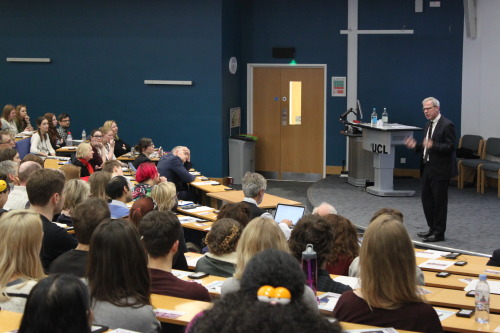
We were very fortunate to have Roy Richard Grinker, Professor of Anthropology and International Affairs at The George Washington University and Director of the Institute for African Studies, give not one, but two talks at our ESRC Shaping Autism Research seminar on Autistic Wellbeing - one during the seminar itself and another to a packed-out lecture theatre at a public event, hosted by the Centre for Research in Autism and Education (CRAE) at UCL Institute of Education and the National Autistic Society.
Richard gave a incredibly thought-provoking lecture on ‘The Changing Values of Autism: From Disease to Citizenship in Late Capitalism’, which you can watch here.
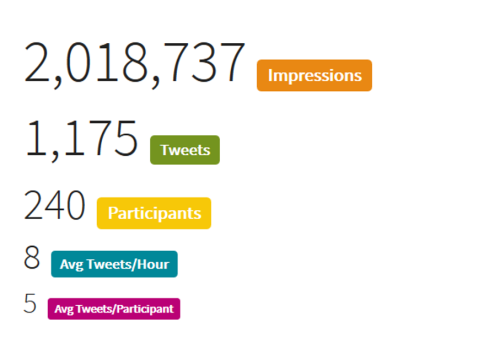
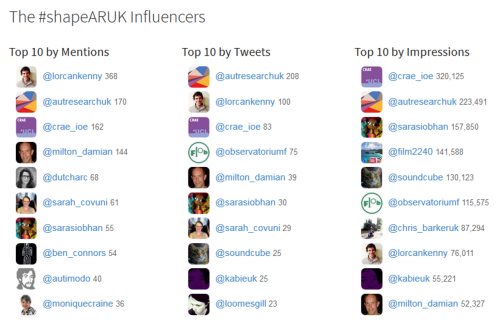
We were delighted to have illustrator and artist, Ben Connors, to talk about his own experiences - and comic creations - of autistic wellbeing and help us make our own comic strips based on lived/imagined/researched experience. People loved the comic workshop! Here are a few pics of people working on their creations with the help of the Piggie Plot Planner…
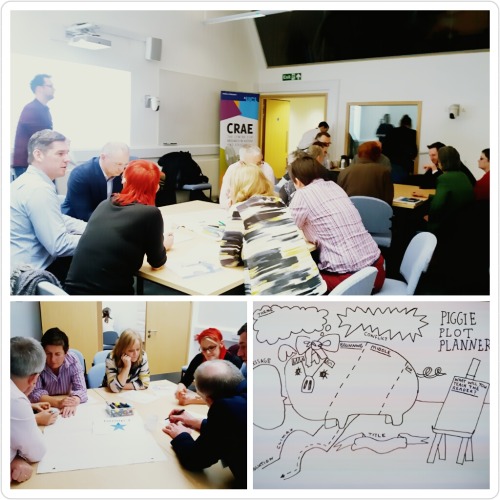
“Beware neurotypical assumptions! Wellbeing is more than ‘happy’: inclusion, valuing people, respect, listening, acceptance”
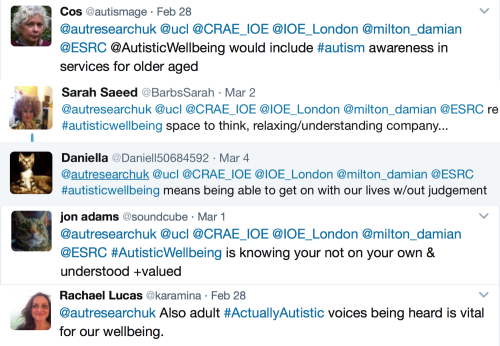

Thanks to everyone who was involved in our recent seminar on Autistic Wellbeing, the fifth seminar in our ESRC Shaping Autism Research series. This particular seminar focused on working towards a shared definition of autistic wellbeing (which, as some attendees quickly pointed out, might have been overly ambitious!) and determining how best to measure autistic wellbeing in our research and embed this understanding in our practice.
Susy Ridout and Damian Milton have put together an excellent summary of the two days below.
We are delighted to announce the programme for our fifth Shaping Autism Research seminar, which is focused specifically on autistic wellbeing. You can also download the easy read programme here.
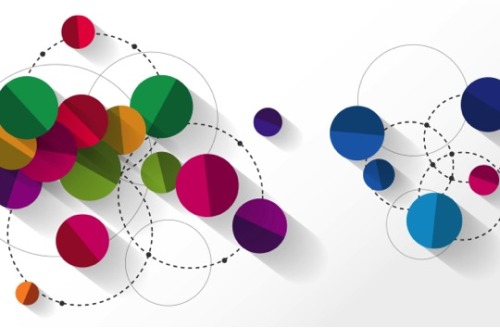
You can download slides from most speakers at the London seminar here:
1. Liz Pellicano: Welcome
2. Damian Milton: How notions of wellbeing are constructed in the accounts of autistic people
3. Steven Kapp: Quality of life and autistics: the critical roles of social support and subjective well-being
4. Martijn Dekker: Neurodiversity in the post-factual society
5. Helen McConachie: Measurement of quality of life
6. Hilde Geurts: Which factors determine autistic wellbeing across the adult lifespan?
7. Ben Connors: Comic strip workshop introduction
8. Monique Craine: Blogger, campaigner and activist for the neurodivergent (ND) community
9. Ginny Russell: How can we prioritise autistic wellbeing in biomedical research?
10. Bob Lowndes: Embedding autistic well-being into our research and practice
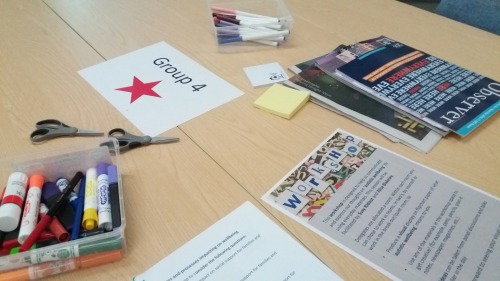
On Day One of the seminar, Susy Ridout and Alice Blakeley facilitated a workshop, which sought to help attendees think creatively about what ‘autistic wellbeing’ means to them and some of the barriers to it in relation to processes, power and context. These are some of the things people came up with … clearly a very thought-provoking exercise!